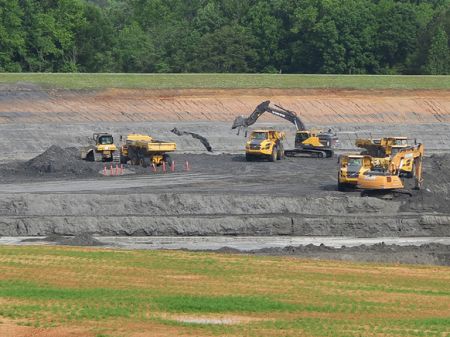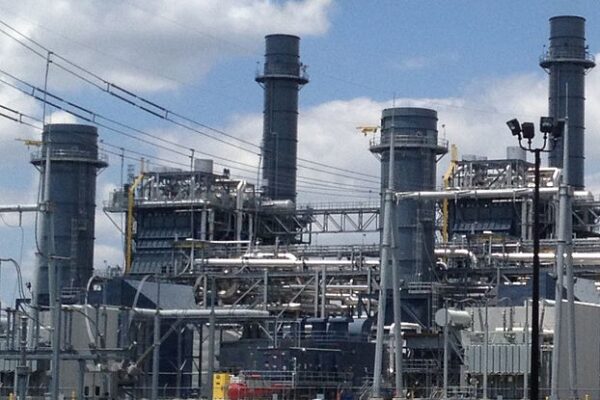By: Lisa Sorg, NC Policy Watch
August 2, 2019
State environmental regulators were not wrong in choosing the method of closure — excavation and removal of millions of tons of coal ash — at Duke Energy impoundments, Administrative Law Judge Selina Malherbe has ruled.
Duke Energy had contested DEQ’s April 1 decision to require it to excavate all of the coal ash from nine unlined impoundments at its remaining six plants. The ash would then be placed in lined landfills onsite or offsite.
Private lawsuits already have compelled Duke Energy to excavate ash from impoundments at eight of its 14 North Carolina plants.
Duke Energy hasn’t exhausted its arguments in the appeal. However, Malherbe’s ruling swings the legal pendulum toward DEQ.
“I am very pleased with the judge’s ruling. It confirms that DEQ has the authority to select the method of closure for coal ash impoundments,” said DEQ Secretary Michael Regan in a prepared statement. “DEQ stands by its determination that the best way to protect public health, communities and the environment is to excavate coal ash impoundments across the state. We will continue to defend that decision as this appeal moves forward.”
Malherbe dismissed four other Duke Energy claims:
That DEQ erred in its timing of selecting a closure plan before Duke Energy submitted its own, which the utility alleged shortcut the process established in state law;
That DEQ was wrong to use a comparative standard rather than the yes-or-no standard review of closure plans;
That DEQ also erred in determining that Duke must close all of its impoundments by Dec. 31, 2029.
Duke opposed full excavation of its unlined pits, arguing that the economic and environmental costs of excavation at these sites didn’t outweigh the benefits. Bill Norton, a Duke Energy spokesperson, said in April the utility’s own science and engineering show the six remaining sites are safe for long-term storage in unlined impoundments that are capped to help prevent water from entering.
The utility estimates full excavation and dry storage would add $4 billion to $5 billion to the current estimate of $5.6 billion for remediations at its plants in North Carolina and South Carolina.
Duke Energy spokeswoman Paige Sheehan provided this statement:
“While we are disappointed in the ruling on this issue, we will proceed with the appeal, standing firm in our belief that the NCDEQ decision is wrong, not based in science and engineering – and not in the best interest of our customers and communities.
“The state’s decision on basin closure mandates the most extreme option for the lowest-risk basins, ignoring information that clearly shows capping the ash in place would continue to fully protect people and the environment.
“By contrast, excavation would drastically increase the cost to customers and create decades of disruption for communities – with no measurable benefit – compared to safely capping the ash in place.”





